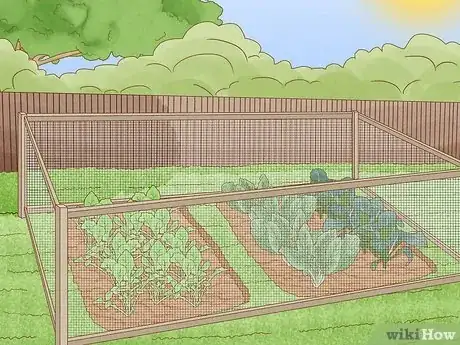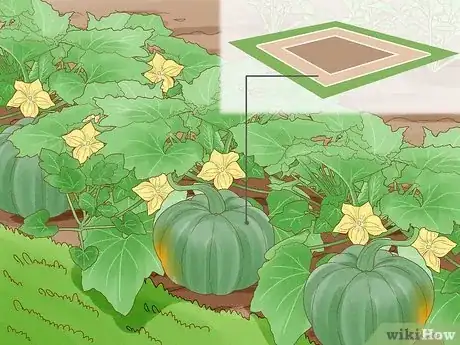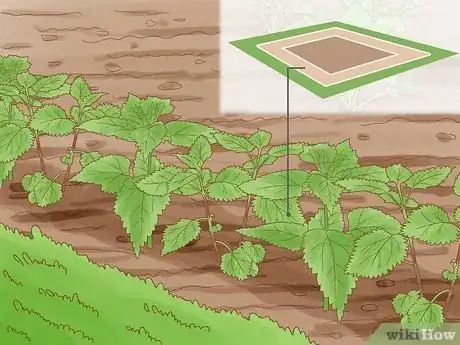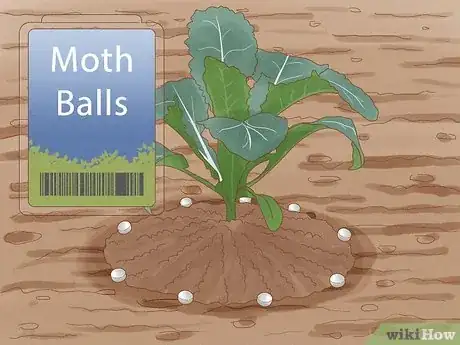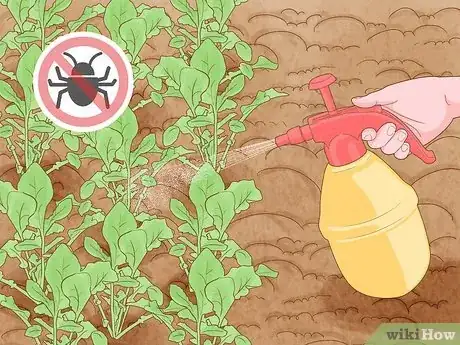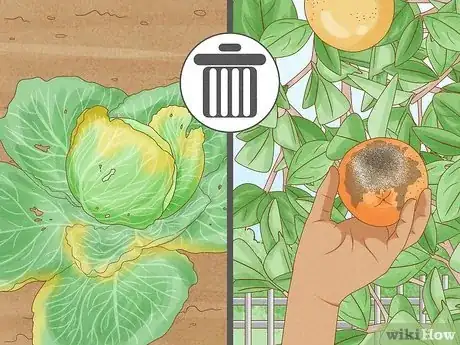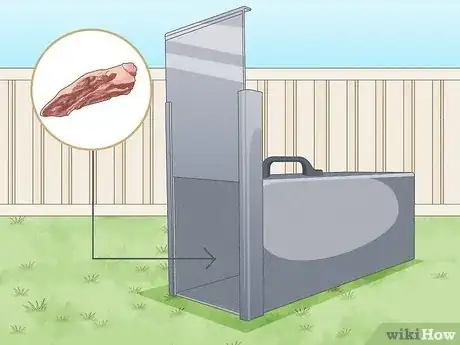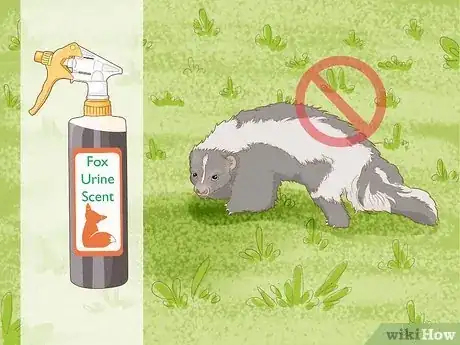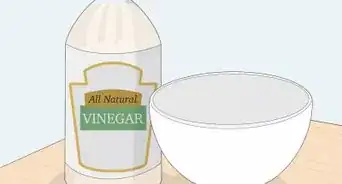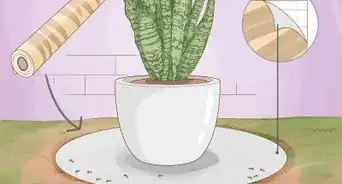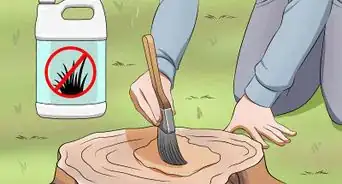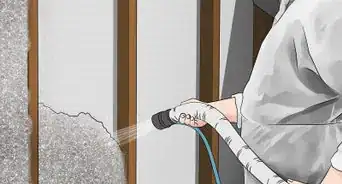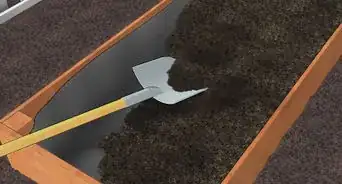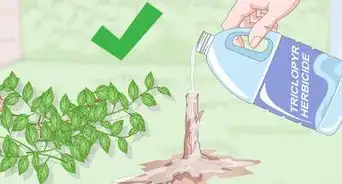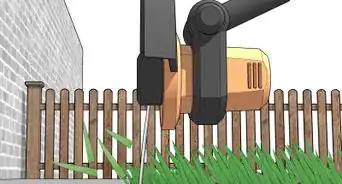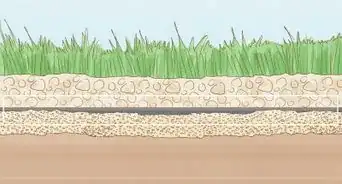This article was co-authored by Chris Parker. Chris Parker is the Founder of Parker Eco Pest Control, a sustainable pest control service in Seattle, Washington. With over seven years of experience, Chris specializes in Integrated Pest Management and doesn’t use any chemicals for pest removal. He offers removal services for ants, rodents, fleas, spiders, wasps, and more. Chris is a certified Commercial Pesticide Applicator in Washington State and received his bachelor’s from the University of Washington.
There are 8 references cited in this article, which can be found at the bottom of the page.
This article has been viewed 108,152 times.
Skunks are mammals with an appetite for both plant and animal material. Their feeding habits change with each season. They eat insects, larvae, salamanders, small rodents, lizards, earthworms, rats, birds, moles, frogs, snakes and bird eggs. They also enjoy most types of berries and nuts, along with roots, grass, fungi and leaves. In neighborhood settings, skunks may rummage through trashcans. If you know how to discourage skunks in your garden and around your home, you may be able to prevent damage to your crops and your property.
Steps
-
1Discourage skunks in your garden by eliminating their access to the food source. The best approach is to fence your garden.[1] Put cages around the plants and cover the berries with netting.
-
2Choose species of plants that repel skunks.
- Plant squash around the perimeter of your garden. Skunks enjoy squash but most won't walk on the squash leaves to get to the vegetable because the plant leaves contain tiny hairs that irritate the skin and feet of skunks.
Advertisement -
3Put some stinging nettle, or Urtica dioica, around the outside of your garden to discourage skunks. The leaves have pointy sharp hairs that break off and produce a liquid when disturbed. The combination of the 2 creates painful burning and stinging.[2]
- Consider planting Fritillaria imperialis, or Crown Imperial, to get rid of skunks. The Crown Imperial is a flower-producing plant. The flowers have an unpleasant odor to skunks, rodents and many people.
-
4Spread mothballs around your plants or the entire garden to repel skunks. Most skunks have a keen sense of smell. The mothballs may not only keep skunks out of your garden, but they may keep them out of your yard altogether.[3]
- Be aware that mothballs are carcinogenic and banned in the European Union. They are dangerous to pets.
-
5Treat your garden for insects. The reason why a skunk may be in your garden is the bugs, worms and other insect population common in gardens. Keep the bugs under control to discourage skunks.
-
6Remove spoiled fruit and vegetables as soon as possible. Rotten food in general harbors insects.
-
7Set traps to get rid of skunks. You can use traps that catch the animals so you can relocate them to better locations that are far away from your garden and home.[4]
- Be sure your traps are tubular in shape and narrow. This serves 2 purposes: it keeps the skunks calm in the dark and prevents them from raising their tails to spray.
- Bait the traps with bacon, cat food, berries, peanut butter or other items that skunks like to eat.
- Place the traps in the garden or in the travel paths to the garden.
-
8Repel skunks with a fox urine scent. Foxes are a skunk's natural enemy. This should discourage skunks from visiting.[5]
Expert Q&A
-
QuestionWhat responsibilities do you have if you choose to use a trap?
 Chris ParkerChris Parker is the Founder of Parker Eco Pest Control, a sustainable pest control service in Seattle, Washington. With over seven years of experience, Chris specializes in Integrated Pest Management and doesn’t use any chemicals for pest removal. He offers removal services for ants, rodents, fleas, spiders, wasps, and more. Chris is a certified Commercial Pesticide Applicator in Washington State and received his bachelor’s from the University of Washington.
Chris ParkerChris Parker is the Founder of Parker Eco Pest Control, a sustainable pest control service in Seattle, Washington. With over seven years of experience, Chris specializes in Integrated Pest Management and doesn’t use any chemicals for pest removal. He offers removal services for ants, rodents, fleas, spiders, wasps, and more. Chris is a certified Commercial Pesticide Applicator in Washington State and received his bachelor’s from the University of Washington.
Pest Control Specialist If you do set up a trap, you have to check it every day. This is one of the biggest concerns I have when people do their own trapping is that they're going to set up a trap, and they're going to forget about it. This is really cruel. Check the trap every day. That is the law.
If you do set up a trap, you have to check it every day. This is one of the biggest concerns I have when people do their own trapping is that they're going to set up a trap, and they're going to forget about it. This is really cruel. Check the trap every day. That is the law. -
QuestionDoes mint repel skunks?
 Community AnswerMint isn't really known to repel skunks, and given that I have a skunk that digs in my garden right next to my mint plants, I would say it doesn't work.
Community AnswerMint isn't really known to repel skunks, and given that I have a skunk that digs in my garden right next to my mint plants, I would say it doesn't work. -
QuestionWhere can I purchase fox urine?
 Community AnswerYou should be able to find fox urine at different kinds of gardening, farm, or animal supply stores. If not, you can purchase it online.
Community AnswerYou should be able to find fox urine at different kinds of gardening, farm, or animal supply stores. If not, you can purchase it online.
Warnings
- Stinging nettle is a perennial plant that can be invasive, so you may have to keep it under control.⧼thumbs_response⧽
- If you plan to get rid of skunks using traps, make sure you know how to remove skunks from the traps safely. Failing to follow safety guidelines may result in injury to you or the skunks.⧼thumbs_response⧽
- Some areas restrict the methods you can use to discourage skunks. Check with your local authorities before you determine the best way to get rid of skunks.⧼thumbs_response⧽
Things You'll Need
- Fence
- Cages
- Netting
- Squash
- Stinging nettle
- Fritillaria imperialis
- Mothballs
- Traps
- Bacon
- Cat food
- Berries
- Peanut butter
- Fox urine scent
References
- ↑ https://www.thisoldhouse.com/how-to/install-critter-proof-garden-fence
- ↑ https://depts.washington.edu/propplnt/Plants/Urtica%20dioica.htm
- ↑ http://www.wildlife-removal.com/skunkmothballs.html
- ↑ http://www.wildlife-removal.com/skunktrap.html
- ↑ https://sciencing.com/animals-fox-urine-repel-5612455.html
- https://getridofthings.com/get-rid-of-skunks/
- http://www.ipm.ucdavis.edu/PMG/PESTNOTES/pn74118.html
- How to Repel Skunks
